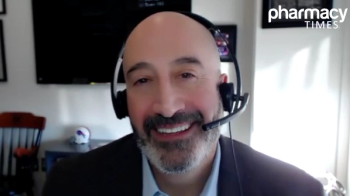
The Value of the Pharmacist in Managing Patient Care During the COVID-19 Pandemic
Pharmacy Times® interviewed Rich Morino, senior director of health care solutions, LexisNexis, on the value of the pharmacist in managing patient care during the COVID-19 pandemic.
Pharmacy Times® interviewed Rich Morino, senior director of health care solutions, LexisNexis, on the value of the pharmacist in managing patient care during the coronavirus disease 2019 (COVID-19) pandemic.
Alana Hippensteele: What is the value of the pharmacist in managing patient care during the COVID-19 pandemic?
Rich Morino: You know, we talked a little bit earlier about how 90% of Americans are still going into their local pharmacy, but some other really interesting statistics about the pharmacy and its role in United States health care is that 90% of the United States lives within 5 miles of a pharmacy. And so, sometimes the pharmacy not only serves as the dispenser, but as the grocery store in a community, whether that community is in an urban food dessert, or whether that community is in a rural environment--the pharmacy’s sole role may be access to health care.
So, you think about that--it's the pharmacy that is going to continue to play a huge role, and I think there's this big question of what will pharmacies be over the next 10 years. And it's not exactly clear because everyone's placing their bets. You look at some of the major chains out there, and some are trying to offer up clinical services, some are inviting local health systems in to give them space, so they can provide that there, others are looking to have kiosks and health centers with kiosks that allow you to interact with contracted positions and so forth. So, there's a variety of different models out there which pharmacies are looking at to see what is the best way to engage these members and offer more services.
I think everyone understands that post COVID-19, the American health care ecosystem still needs to adjust a little bit, we need to play with the model. There is a shortage of primary care physicians, and the degree by which you could offer more standard services in clinics and the clinic experience, so that when you go see a physician to diagnose something that might be unknown, as opposed to, ‘Oh, it's allergy season and twice a year, during allergy seasons, I have a sinus infection, I know this, I could go to the pharmacy, and they could go ahead and diagnose it and write a prescription and get it filled, all while going and buying some additional items.’ People have started to go down that path, and many have already seen that as their primary point of care already.
So, you know, what is the value of the pharmacy in managing patient care during this pandemic: It is being that trusted place where individuals can go. I think if you look at what the government is doing at the federal level too: Health and Human Services is continuing to authorize pharmacies to offer more and more services, I know that they authorized pharmacies to provide COVID-19 tests, they can start doing childhood vaccines as long as their 3 years or older with the right license, and so I think you're going to see more and more of that. If we're going to be successful managing the total population's health, we need to provide services for where the population is going to [around] where they live and where they feel comfortable, and the pharmacy is the epicenter of that.
Newsletter
Stay informed on drug updates, treatment guidelines, and pharmacy practice trends—subscribe to Pharmacy Times for weekly clinical insights.


























